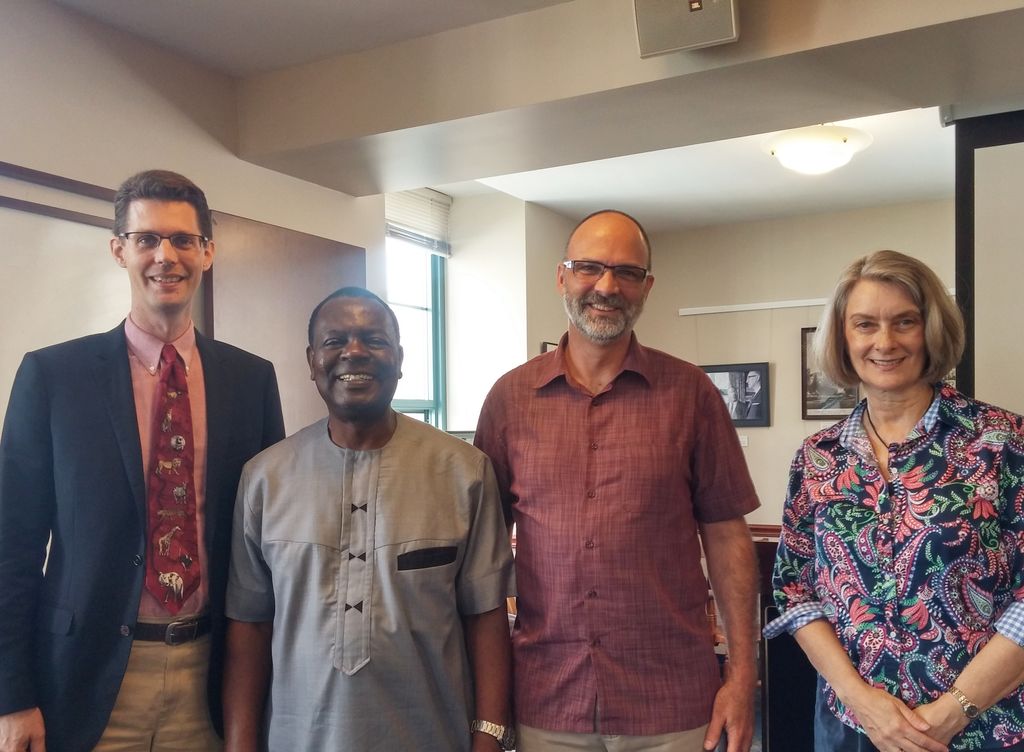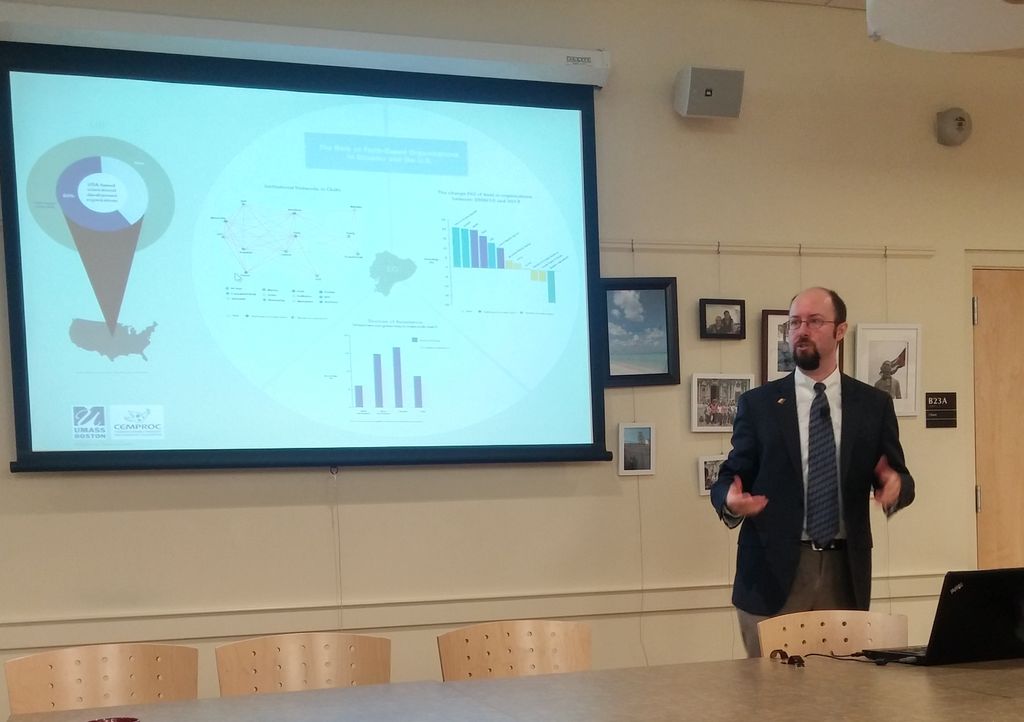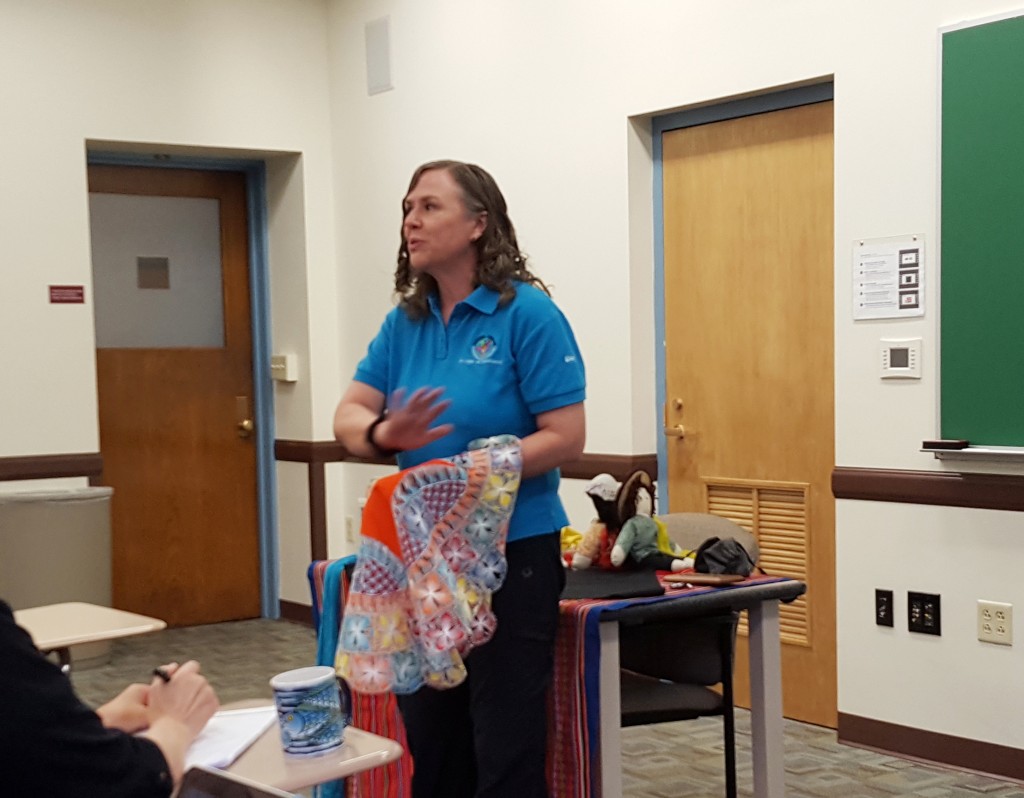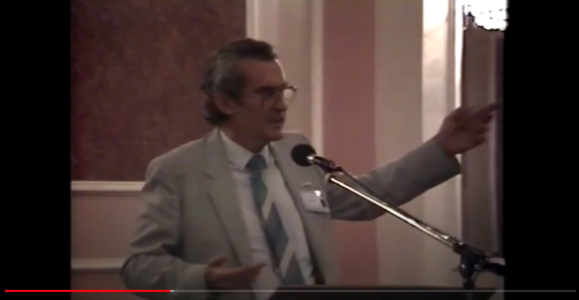Religion & Development
Globally, religious people and communities have been deeply involved with alleviating human suffering and meeting basic human needs since the earliest days of mission. Furthering our understanding of how this happens and enhancing the ability of practitioners to work in this context are important goals of the CGCM.
Honoring Dr. M.L. Daneel’s Groundbreaking Work in Ecotheology
Dr. Harold Hunter, a leading Pentecostal scholar and ecumenist, has released this recording of Dr. M. L. Daneel’s speech at Brighton ’91. Hunter has added an introduction to help situate groundbreaking nature of the lecture.
Call for Abstracts: Women as Agents of Change
The Women's Institue at William Carey International University is offering a call for abstracts with the aim of awarding an Excellence in Research Prize for papers that demonstrate the highest research standards on the following topics pertaining to Women as Agents of Change.
- Church Leadership
- Health
- Marketplace
- Education/Training
- Development
- Intercultural Studies
Abstracts are due before January 31st, 2022, and can be forwarded to tony.pina@wciu.edu.
For the official entry details, click here.
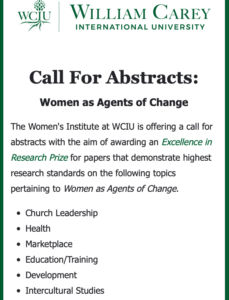
The Reverend Jack Amick (STH ’06) and UMCOR’s Global Migration Program
The Reverend Jack Amick, STH alumn, is featured in a recent article announcing $10 million in grants for the work of Global Ministries and UMCOR.
The director of UMCOR's Global Migration Program, Rev. Jack Amick ('06), describes its primary goal to "support the church in its efforts to provide welcome to refugees and migrants of all types, regardless of where they are on the migration journey."
For more information about the grant announcements, to learn more about Global Ministries, UMCOR, and Rev. Amick, read the article here.
Announcing the Endowment of the Center for Global Christianity and Mission
The 20th Anniversary of the CGCM
On October 1st, Boston University announced the endowment of the Center for Global Christianity and Mission. The milestone was revealed on the 20th anniversary of the Center's founding. Opened in 2001 under the leadership of Dana L. Robert and Inus Daneel, the CGCM was the first Center of its kind in a research university in North America.
Since its inception, the Center has expanded rapidly. It launched Boston University’s first digital humanities project, and has remained at the forefront of digital scholarship. Today, the Center and its various online research platforms receive more than one million visits each year. However, the CGCM is more than an online community. It is the crossroads where students, scholars, and mission practitioners intersect. It provides numerous lectures and events that bring the reality of World Christianity home to students at Boston University. In fact, the Center sponsors some kind of event for the public approximately every other week.
The Center remains a cauldron of creativity. With fourteen affiliated faculty and ten Visiting Researchers, new ventures regularly bubble up. Currently, Dana Robert is spearheading a massive research project on “Mission and Collaboration in North America.” The Center has also recently launched projects on Global Congregational Song, the Sanctuary Movement in North and Central America, African Pentecostal Films, Mapping Christianity in China, and the Young Ecumenical Movement. When the world is your area of study, the possibilities are endless.
The Center passed the minimum threshold for an endowment, but it seeks to strengthen its financial foundation. The CGCM receives no funding from the university, but relies on the support and generosity of its community. To make a contribution to support the Center for the next twenty years, you can make a tax-deductible donation here.
China Historical Christian Database Receives Competitive NEH Grant
 Drs. Daryl Ireland, Eugenio Menegon, and Alex Mayfield recently wrote a proposal to receive a Digital Humanities Advancement Grant from the National Endowment for the Humanities for continued development of the China Historical Christian Database. We are pleased to announce that their proposal was just accepted! The project was one of twenty projects chosen by the NEH to receive this generous funding. The project will further the digital mapping work of the Database, which charts Christian figures and institutions across China from 1550-1950, revealing the interconnection between missions, hospitals, schools, and other institutions, and illuminating the exchange of ideas and technologies between China and the West over four centuries.
Drs. Daryl Ireland, Eugenio Menegon, and Alex Mayfield recently wrote a proposal to receive a Digital Humanities Advancement Grant from the National Endowment for the Humanities for continued development of the China Historical Christian Database. We are pleased to announce that their proposal was just accepted! The project was one of twenty projects chosen by the NEH to receive this generous funding. The project will further the digital mapping work of the Database, which charts Christian figures and institutions across China from 1550-1950, revealing the interconnection between missions, hospitals, schools, and other institutions, and illuminating the exchange of ideas and technologies between China and the West over four centuries.
Learn more about all the grant-winning projects at the NEH website, and more news about the Center's grant at the BUSTH website.
Call for Papers: COVID-19, Disease, and the World Church
In the midst of a pandemic that is shaking the globe we call for papers for a special issue of Studies in World Christianity that analyse immediate responses to COVID-19 and that give some historical perspective on pandemics or epidemics. We do this in order to resource further response to pandemic whose effects will be with us for some years to come.
The papers may interrogate worldwide Christian responses to the outbreak of COVID-19 around the world by examining how churches have responded theologically and practically as the disease continues to spread. How have Christians responded by offering hope, calling for lament, or proclaiming God’s judgment? What ethical questions about planetary health, palliative care etc. have emerged or been hightened? How has digital media been employed for online church practice or as a vehicle for evangelism and social engagement? How has social distancing shaped understandings of the church community, and in what ways has online church left behind certain sectors of society?
The papers may also provide insight into how the world church in the past understood wide spread disease. Plague and pestilence have regularly been given theological scrutiny in Christian history and have prompted discussions of evil. The 1918-19 Influenza Pandemic influenced Pentecostal growth across the globe, and was instrumental in creating Independent Churches in West Africa who turned to fervent prayer and criticised mission churches for a lack of confidence in God. Missionary photography of plague and leprosy have been used to invigorate support of Western churches and missionary societies. In more recent history, HIV/AIDS has been described by some as the result of sexual sin, whereas the Avian flu and SARS were seen by others as fulfilling end-times prophecy and Ebola has shaken customary palliative care and funeral rites.
It is not uncommon to find articles that address aspects of health and Christian healing. In this special issue we wish to examine worldwide Christian reactions to disease and its spread as a way of understanding and reflecting upon a common problem with different contextual outcomes that have distinct and shared responses across the globe.
Due to the timeliness of the subject, we invite indicative abstracts by 20 April 2020 and complete articles (5000–8000 words, footnotes inclusive) by 25 May 2020. Papers should be formatted based on our styl e guide https://www.euppublishing.com/pb-assets/SWC_May2017.pdf and emailed to swc-editor@ed.ac.uk.
New Book: The Split Economy
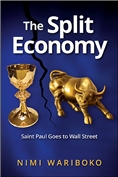 In his new book, The Split Economy, Nimi Wariboko looks closely at the ethical challenge of capitalism. Others have named injustice, inequality, repression, exploitative empires, and capitalism’s psychic hold over all of us, as the central problem. Nimi Wariboko instead argues that the core ethical problem of capitalism lies in the split nature of the modern economy, an economy divided against itself. Production is set against finance, consumption against saving, and the future against the present. As the rich enjoy their lifestyle, their fellow citizens live in servitude. The economy mimics the structure of our human subjectivity as Saint Paul theorizes in Romans 7: the law constitutes the subject as split, traversed by negativity. The economy is split, shot through with a fundamental antagonism. This fundamental negativity at the core of the economy disturbs its stability and identity, generating its destructive drive. The Split Economy develops a robust theoretical framework at the intersection of continental philosophy, psychoanalytic theory, theology, and political economy to reveal a fundamental dynamic at the heart of capitalism.
In his new book, The Split Economy, Nimi Wariboko looks closely at the ethical challenge of capitalism. Others have named injustice, inequality, repression, exploitative empires, and capitalism’s psychic hold over all of us, as the central problem. Nimi Wariboko instead argues that the core ethical problem of capitalism lies in the split nature of the modern economy, an economy divided against itself. Production is set against finance, consumption against saving, and the future against the present. As the rich enjoy their lifestyle, their fellow citizens live in servitude. The economy mimics the structure of our human subjectivity as Saint Paul theorizes in Romans 7: the law constitutes the subject as split, traversed by negativity. The economy is split, shot through with a fundamental antagonism. This fundamental negativity at the core of the economy disturbs its stability and identity, generating its destructive drive. The Split Economy develops a robust theoretical framework at the intersection of continental philosophy, psychoanalytic theory, theology, and political economy to reveal a fundamental dynamic at the heart of capitalism.
Christian-Muslim Relations and State Formation in West Africa
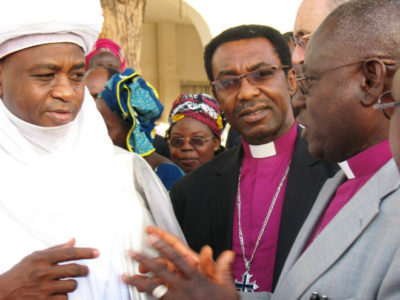 Many emerging countries in postcolonial West Africa have found themselves at the center of Christian-Muslim interactions in the contemporary world. Nimi Wariboko's new piece, "Christian-Muslim Relations and the Ethos of State Formation in West Africa” in Evelyn A. Reisacher (ed.), Dynamics of the Muslim Worlds: Regional, Theological, and Theological Perspectives (Downers Groove, IL: IVP Academic 2017), explores the ways in which such state formation is both shaped by and shapes (sometimes coopting for the state's own ends) dynamics between these two religious communities.
Many emerging countries in postcolonial West Africa have found themselves at the center of Christian-Muslim interactions in the contemporary world. Nimi Wariboko's new piece, "Christian-Muslim Relations and the Ethos of State Formation in West Africa” in Evelyn A. Reisacher (ed.), Dynamics of the Muslim Worlds: Regional, Theological, and Theological Perspectives (Downers Groove, IL: IVP Academic 2017), explores the ways in which such state formation is both shaped by and shapes (sometimes coopting for the state's own ends) dynamics between these two religious communities.
Killing our Children’s Children
Surveying ecological disasters around the world, Visiting Researcher Kapya Kaoma delivered sharp warnings that an earth-theology must be developed, or we will be "killing our children's children." Dr. Kaoma delivered his message during the Gunther Wittenberg Lecture at the University of KwaZulu-Natal Ujamaa Centre in South Africa. His entire lecture has been made through Critical Investigations into Humanitarianism in Africa.
September CGCM Events
In September, CGCM had three seminars on various topics. On September 14th, Pius Tih, the Director of health services for the Cameroon Baptist Convention Health Board (CBCHB), met over breakfast with students and spoke about the role of Faith-Based Organizations in global health care. On September 22nd, Jeff Pugh, the executive director of the Center for Mediation, Peace, and Resolution of Conflict (CEMPROC) based in Quito, Ecuador, shared his experience building bridges of peace, conflict transformation, and development in both Latin America and the U.S. On September 27th, Elena Huegel shared from her rich experiences as both a child of a missionary family and her adult life in mission throughout Latin America. She discussed the opportunities and challenges emerging from the partnership in which she has participated between the United Church of Christ and the Pentecostal Church of Chile. Of particular focus was her work related to recovery from trauma--personal trauma, communal trauma, and environmental trauma--with such work taking place in local congregations and most notably in the Shalom Center in the foothills of the Andes.